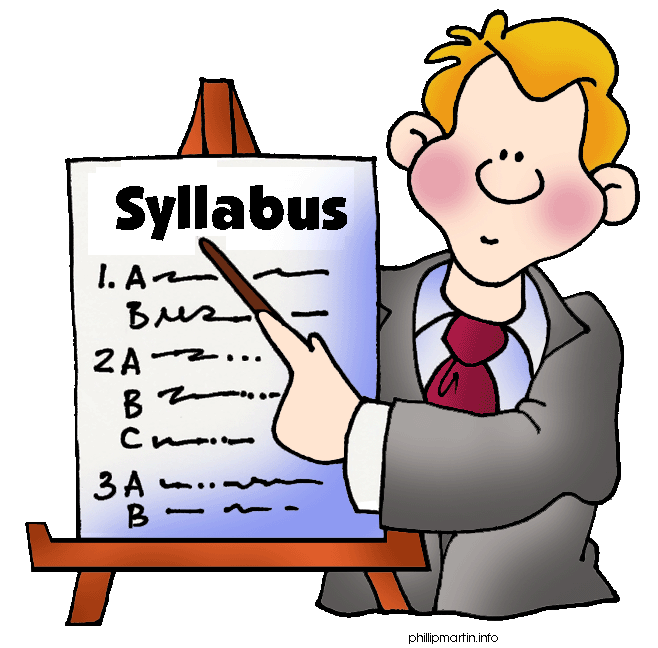In the aftermath of PAT’s teacher strike, staff and students scramble to make up for November’s content deficit. As PPS strains to make up lost days, IB and AP exams are only getting closer–and the anxiety they caused during the break could have been lessened if concrete, transparent plans for the school year were shared with students and families. This is one instance, of many, that support the reasoning for required syllabi in college-level courses within PPS. I appreciate beyond words the planning that Cleveland’s instructors have done to accommodate the PAT’s–desperately needed–strike, and I also believe that it proves the necessity of detailed syllabi.
Currently, most of the syllabi I have come across only detail grading policies and emphasize that academic honesty is a necessity to succeed in school. It is expected that teachers have already developed detailed plans for the year. I believe that making those plans widely accessible–perhaps even uploading every assignment planned for the year on the first day of courses–would benefit students just as much as it benefits educators to have those agendas.
The reasoning behind neglecting syllabi seems to be that engagement lowers when students can work ahead. Students can handle the responsibility of pacing themselves, and would likely understand the value of attending class if they could experiment with different ways to weigh their engagement and their academic year overall. Students who feel they may gain more by missing school and consulting detailed syllabi or online resources should be able to do so. Students who feel they need more help would still benefit–greatly–from attending class. There are bigger problems than a student’s pacing if a detailed syllabus undermines the purpose of attending class.
IB and AP courses are meant to prepare students for college, and set them up to attend rigorous institutions with high expectations and new structures. Mimicking college courses to the most detailed extent provides students with a deeper understanding of college academics, and forces them to adapt before they even set foot on future campuses. Students with access to syllabi in fast-paced courses would grow to understand the importance of each class and learn to anticipate heavy workloads. Situations that necessitate time off of school only prove the point that neglecting one’s class syllabus is an indirect punishment to students who wish to plan for success (or beyond, by working ahead). If clear syllabi were valued school-wide, students would feel less panicked around times with many deadlines because they could anticipate them weeks in advance, and therefore feel better supported to accomplish their goals.
Teachers could expect more from their students without fear of absences sabotaging their courses. Detailed syllabi would help substitutes to contextualize course material that was given to them on extremely short notice, which would lessen the negative impacts of teacher absences. Students who may have unsatisfying attendance rates could catch up effectively, and understand the precise extent of make-up work needed for classes that may not be updated daily via Canvas. A syllabus may also act as insurance for educators, who would have less direct need to get absent students caught up, and could directly save time to work one-on-one with other students or give more lectures/instruction time to the class.
Perhaps in my ideal world, syllabi would plan down to the 30-second increment (would that be such a crime?); though that may not be possible, thorough and clear syllabi have clear advantages when the alternative is practically one solid page of, “Please! Please don’t ask me to round your grade!” over and over. Even for students who elect not to reap the benefits of a detailed syllabus, it wouldn’t damage their education to make highly-detailed course plans accessible to their peers. A comprehensive syllabus is an immeasurable favor to students who value their education, are learning to manage their time better, have responsibilities outside of school that infringe on their ability to attend class, or simply wish to be better prepared for challenging subjects.
Works Cited:
Drake University. “The Many Purposes of Course Syllabi.” THE MANY PURPOSES OF COURSE SYLLABI: WHICH ARE ESSENTIAL AND USEFUL?, 2012, https://www.pfw.edu/dotAsset/bdf64113-75c4-487a-ba68-dfcc3044ce9c.pdf. Accessed 3 December 2023.
“Building an Inclusive Syllabus | Teaching Commons.” Stanford Teaching Commons, https://teachingcommons.stanford.edu/teaching-guides/inclusive-teaching-guide/planning-inclusive-course/building-inclusive-syllabus. Accessed 3 December 2023.
“What are the Purposes of a Syllabus? | VCU Online.” VCU Online, https://online.vcu.edu/resource/what-are-the-purposes-of-a-syllabus/. Accessed 3 December 2023.













